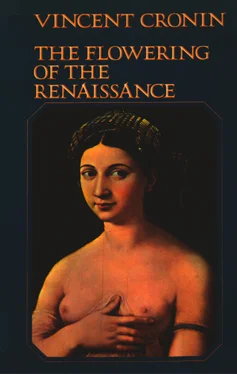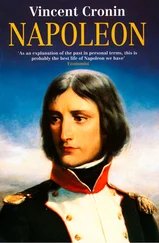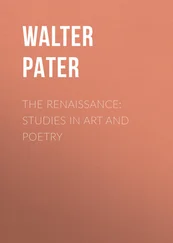Soon after his election Leo is reported to have said to his brother, ‘Let us enjoy the Papacy since God has given it to us.’ Though first recorded by a Venetian two years after the event, the mot may well be authentic; if so, it is much less ingenuous than it sounds. Leo had been raised in a civic-minded and civilized Republican family, and enjoyment for him meant extending through patronage the principles of Christian humanism. His ambition as Pope was to renew Christianity through learning, literature and the arts. Rome in particular he intended to become a great civilized city, a worthy successor to the Rome of Virgil and Horace. The humanists understood this when they hailed Leo on the morrow of his election with the phrase: ‘After Caesar, Augustus.’
To civilize Rome was no small ambition. Despite Julius’s building, the city was still an inhumane and bloodthirsty place. Within memory a Pope’s son had been stabbed to death, and when someone who had seen the body being thrown into the Tiber was asked by the magistrates why he had not revealed the fact, he replied that murder was an everyday occurrence and it had never dawned on him to go to the authorities. With advances in medicine poison was now being increasingly and more subtly used; indeed it was a Florentine cardinal, Ferdinando Ponzetti, who in 1521 published the first handbook on poisons. Leo himself was to be the object of a plot headed by Alfonso Petrucci, who disapproved of papal policy in Siena, and five other cardinals. They planned that Leo’s fistula should be treated with ointment containing poison. Through an intercepted letter the plot was discovered and quashed, but the incident puts into relief the ambitious nature of Leo’s programme.
As an essential condition for civilizing Rome, Leo had to preserve the peace won for Italy by Julius II’s wars. Under their ambitious young king, François I, the French again crossed the Alps in 1515, while the election of Charles V as Emperor in 1519 united in a formidable coalition Spanish with German strength. Applying Lorenzo’s principle of the balance of power, Leo skilfully got the Emperor to expel François from Milan and thereafter played off the two rulers against each other. He also forestalled any future French schism by the Concordat of 1516. This laid down that the Pope and the King of France were jointly to appoint bishops; it made the King to a certain extent overlord of the French Church, but also at the same time its natural protector. For three hundred years Leo’s Concordat was to ensure that French kings would, if only from self-interest, remain loyal to Rome.
Leo began his work of civilizing Rome by refounding the Sapienza, which because of war had been inoperative for thirty years. He did so on a lavish scale. He appointed no less than 88 professors at salaries totalling 14,490 ducats, part of which, in case of sickness, was payable to their dependants. With his usual broad-mindedness he increased the range of faculties: civil law was the largest—Leo lifted the ban on clerics studying this subject—then came rhetoric, philosophy and theology, medicine, canon law, Greek, mathematics, astronomy and botany. Leo rejected the chauvinism implicit in Pomponius Laetus’s boast that he declined to learn Greek for fear of spoiling his Latin accent; the new Pope summoned Giovanni Lascaris, Lorenzo’s former librarian, to strengthen the Greek faculty, and subsidized Varino Favorino, who had once taught him Greek, in his task of composing an important Greek lexicon. Leo also founded a Greek press, attached to the Sapienza, which published scholarly editions of Didymus’s Commentaries on Homer , Porphyry’s Homeric Questions , and the Scholia of Sophocles’s tragedies. He encouraged Cardinal Ximenes in his five-language edition of the Bible, and shipped to him in Toledo boxes of precious Greek manuscripts chained and padlocked. Hebrew studies Leo also promoted by founding a chair of Hebrew and a Hebrew press. When the German scholar Johann Reuchlin was denounced to Rome by the Dominicans for advocating the study of all Hebrew books, even those hostile to Christianity, Leo dropped the case, a gesture which German humanists interpreted as a blessing on free enquiry.
Leo’s most imaginative scheme concerns the Latin language. In common with most of his educated contemporaries Leo had a great personal liking for classical Latin and spoke it fluently, but where others saw Latin only as a means of penetrating the admired world of Cicero and Virgil, Leo saw it as a means of attaining through a study of origins to a deeper self-consciousness. With this in mind he decreed that every meeting of the Conservators—the municipal Council of Rome—should open with a speech in Latin by a native Roman about distinguished Roman citizens of past ages. But this was only one half of Leo’s plan for Latin. He wished also to make the language of Cicero the universal language of educated men, and as such, an instrument of civilization and peace. Just as the Roman Emperors used Latin to unite their Empire—Latin, claimed Valla, had more power than all the legions combined—so he would use it to unite Christendom. The very first thing Leo did on leaving the conclave was to appoint as his domestic secretaries the two most elegant Latin stylists alive—Jacopo Sadoleto of Modena and Pietro Bembo of Venice—with instructions to draft all the Pope’s official correspondence, within and without Italy, in Ciceronian Latin.
With the same aim in mind Leo encouraged the writing and improvisation of Latin verse. At meals he liked to swap impromptu repartee with Camillo Querno, a prolific versifier with long flowing hair, known as ‘the archpoet’:
Querno: Archipoeta facit versus pro mille poetis.
Leo: Et pro mille aliis Archipoeta bibit.
Querno: Porrige quod faciat mihi carmina docta Falernum.
Leo: Hoc etiam enervat debilitatque pedes.
Querno: The archpoet turns out verses like a thousand poets.
Leo: And puts away wine like a thousand more.
Querno: Pass me the Falernian that inspires my witty songs.
Leo: It excites you and makes you unsteady on your pins.
If Querno failed to produce a reply in perfect hexameters, Leo would add water to his wine.
Leo issued an invitation to the poets of Italy to come to Rome and write Latin verse. Nearly three hundred accepted, and most of them lived at Leo’s expense. Young Ariosto was one who came for a time. He was warmly welcomed by the Pope, who kissed him on both cheeks and gave him a copyright for his verses, but finally he decided that he would rather be ‘first in Italian than second in Latin.’ Among those who stayed the majority produced clever occasional pieces. Biagio Palladio wrote about the passing of the most famous Roman courtesan, Imperia, who at the age of thirty-one drankpoison after a lovers’ quarrel: ‘Mars gave imperial rule to Rome, and Venus gave us Imperia; Fortune deprived us of imperial rule, Imperia of our hearts.’ In an excellent poem Sadoleto hailed the Laocoön as an image of Roma rediviva and said he could almost hear the figures groaning, whereupon Francesco Arsilli, not to be outdone, wrote a poem about Sadoleto praising the Laocoön : ‘Never, Sadoleto, will your name be lessened by usurious Time.’
A few of the three hundred were genuine poets. They found that a classical language and the establishment of classical standards released creative energies, and they used the materials of antiquity in order to express a distinctively personal vision. Such was Marcantonio Flaminio, who arrived from a village in the Dolomites at the age of sixteen, and was hailed by Leo as a prodigy. Flaminio’s pure style is revealed in the opening strophe of his Ode to Diana :
Читать дальше












